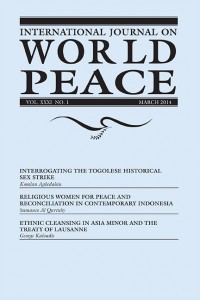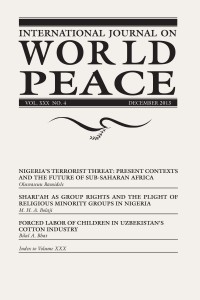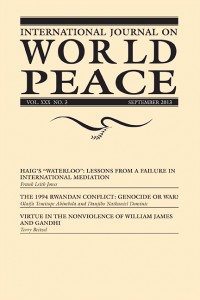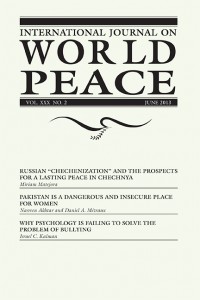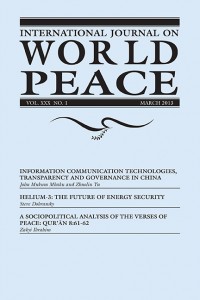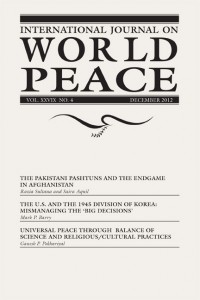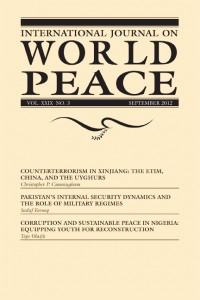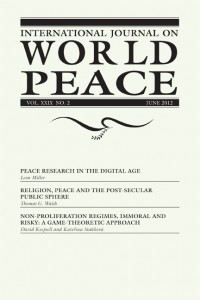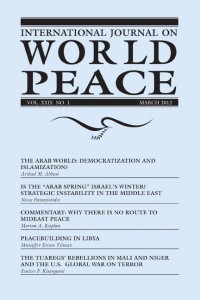Introduction to IJWP, June 2014
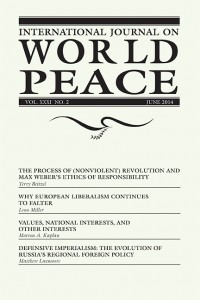
From Kant’s influential Perpetual Peace to the social scientific studies of society in the twentieth century many writers argued that cultural values and economic interests needed to be satisfied to achieve a lasting peace. However, Hans Morgenthau, a highly influential professor of international politics disagreed. He wrote in 1948:
The main signpost that helps political realism to find its way through the landscape of international politics is the concept of interest defined in terms of power.1
This issue of IJWP challenges this political realism in several ways, arguing that it fails to hold state actors within the bounds of legitimate and moral use of power, that it fails to integrate economic and cultural “soft power” interests in its simplistic, black and white analyses, and that it fails to address levels of governance other than the state that are integrally tied to subsystems and international systems.
It is more important than ever to advance a more integral understanding of international relations that sees human society in terms of a set of interconnected social systems, beginning at the level of individuals, and moving through family systems and face-to-face community systems to state political economies, and finally to international organization.
There are three major spheres of influence, the political, economic, and cultural. Of these three, the political, which is the sphere of legal power and force, should be the servant of the economic and cultural spheres, rather than their master. But, power corrupts, and elites in any sphere whose powers are unchecked, will abuse that power and, like a cancer, feed off of those they are in a position to serve, creating unhappiness, inequality, and violence. This reversal of dominion is often cited as the difference between a “politician” and a “statesman.” It is what distinguishes a Nelson Mandela from the average power broker.

